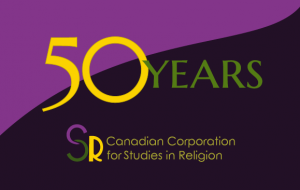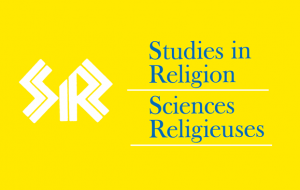CCSR Working Group
Decolonization: Equity, Diversity and Inclusion
Revised June 13, 2024
The academy is changing. One aspect of change is the way in which academics are facing and confronting inequity, asking new questions around experiences and voices of those who have been marginalized and have been historically silenced from mainstream theological and religious studies debates.
What are the special challenges we face and opportunities we can engage in religious studies and theology in Canada?
The Canadian Corporation for the Study of Religion is an umbrella organization for a number of Canadian academic societies that focus on the study of religion. It supports conversations and publications related to the study of religion in a Canadian context and is uniquely situated to facilitate a conversation around questions of religion, equity and decolonization.
This working group met (remotely) on March 8, June 18, and October 25, 2021.
This report outlines the following:
- Background
- Definitions and assumptions
- Reading list/resources
- Federation meeting
- Proposal for panel discussion(s)
- Land Acknowledgement
- Suggested approaches and best practices
- Background
In 2019, in response to a query around whether members societies or CCSR had a sexual harassment policy, a working group was formed. Heather Shipley, Christie Mitchell, Diana Dimitrova, and Mona Tokarek LaFosse. It was determined that the conversation needed to be expanded to larger issues of equity, diversity and decolonization.
In 2021, the Federation put forward their document: “Igniting Change: Final Report and Recommendations: By the Congress Advisory Committee on Equity, Diversity, Inclusion, and Decolonization (AC-EDID)”
- Definitions and assumptions
This working group began with questions around assumptions and definitions:
- Do the terms “equity,” “diversity,” and “inclusion” serve us well? Questions arose around the differences between equality, equity, and justice.
- The idea of “decolonization” serves as a better foundation for our work together, which recognizes and makes space for diversity and for co-constitutive work and relationships.
- We discussed the current centrality of colonial-based epistemologies in academia as well as the systemic issues at the center of the BCAS decision to withdraw from Congress in 2021. How can religious studies make space for BIPOC epistemologies, including the values of those epistemologies?
- Finding common and shared language to be able to talk about this is important. We have found our conversations to be generative and informative as we have been exploring these ideas together.
- Reading/resource list
We have compiled a number of resources. The following are helpful places to start:
Gaudry, Adam and Danielle Lorenz. “Indigenization as inclusion, reconciliation, and decolonization: navigating the different visions for indigenizing the Canadian Academy.” AlterNative 14.3 (2018): 218–227. https://doi.org/10.1177/1177180118785382
Medina, Néstor and Becca Whitla, “(An)Other Canada is Possible: Rethinking Canada’s Colonial Legacy”. Horizontes Decoloniales/Decolonial Horizons 5 (September 2019):13-41.
- Federation meeting
Mona spoke briefly about the work of this group at the Federation Member Forum meeting on Nov 23, 2021 as part of a discussion on Equity, Diversity, Inclusion and Decolonization. They summarized the contribution as follows:
One association president explained that their association is a member of another umbrella organization that created a working group on EDID and that they are collaborating with other associations in this working group. They recommended this practice as it has led to very meaningful collaboration with colleagues they had not worked with in the past.
- Round-table discussion(s)
On May 9, 2022, we held an online round-table discussion with the four working group members entitled “Disrupting Colonialism in the ‘Study of Religion’” in which we shared some of our insights and learning from our working group discussions.
We recommend a future panel with representatives of and open to all CCSR societies alongside future annual meetings, with an intention of wrestling with the ideas and implications of decolonization from within their own disciplinary fields. We envision this as a kind of conversation circle that would address some or all of the following:
- dominant interpretative frameworks as hermeneutics, with discussion on how we can critically engage our own positionality when unpacking our logics or interpretations (positionality and social location: who am I, who am I from?)
- interreligious dialogue and decolonization
- the impact and influence of UNDRIP, focusing our thoughts on decolonization and self-determination in our disciplines in the study of religion.
- Instead of a theoretical discussion, focus on how we as societies each can respond to the direction of the Federation, offering practical ways that decolonization can be reflected in our academic societies, with a particular focus on Canadian academic contexts
- Land acknowledgment
- For virtual meetings: chair acknowledges the traditional territory where they are situated, invites others to do the same. See: https://www.caut.ca/content/guide-acknowledging-first-peoples-traditional-territory
- A land acknowledgement should not be a “tick box”, but is also acknowledging colonialism, here and all over the world (as well as newcomers and displaced people). It disrupts that idea that possession/ownership of land is normative; it promotes “dispossession” of the land. It reveals the status of being guests where we are and promotes relationship with the land; it goes against a Western European mindset of fighting for what is “mine” and exclusivity.
- Beyond a simple acknowledgement:
- What does it mean?
- What does it look like?
- Pronunciation guides
- Acknowledge and understand whether this is Treaty or unceded land
- Understand why one does a land acknowledgement, and learn to do it without embarrassment
- Suggested approaches and best practices
We propose the following for the consideration of the CCSR Board, perhaps to be refined and distributed to constituent societies:
Preliminary questions and observations:
- What is our role as religious studies/theology scholars?
- This is not just about how to change a conference, but about systemic
- When more scholars who are women, racialized or minoritized are hired in academic departments, involved in societies, and presenting at conferences, more will come. Role models that students can identify with are needed.
- This entails spaces in which people feel safe enough to reveal themselves instead of “code-shifting.” Implicit racism occurs when racialized or sexualized persons are constantly asked to explain their position/ality.
- A decolonized approach situates my own epistemology and does not negate other epistemologies; it is a co-constitutive relationship where no one possesses the other.
- This is a call for decolonization of knowledge.
Here are six suggestions for practical ways to move forward (with the Federation’s recommendations in mind):
- Programming: programmes should be organized in such a way that they provide access for marginalized persons
- Panels: panels should not be “wanels” or “manels”; that is, they should be structured to avoid being composed of all white people and/or men
- Language and power: attention should be given to how equity and justice is addressed; equity and justice are not “favours” granted, but a way of recognizing mutual enrichment.
- Equity in representation: paper presenters, moderators and the executive should reflect equity in representation
- Owning history: a recognition of how history has shaped the academic enterprise should be acknowledged, considered, discussed, and acted upon
- Call for papers: how the call for papers is articulated and crafted should be done in such a way that invites people (e.g., BIPOC) to present and feel safe to present
Best practices:
- Invite panelists from a diverse range of people, people from different groups.
- Ask for papers using wording that is inviting, like: “those from racialized and minoritized groups are especially welcome to submit.”
- Be aware of privileging English over French, especially in societies that say they are bilingual.
- Consider asking about positionality, where people are situated, in addition to a land acknowledgement: who are you from? We often don’t take time for this, but it would serve to decenter whiteness and settler-colonial identities.
This document was created by:
Mona Tokarek LaFosse – Chair (2020-2024)
Diana Dimitrova (2020-2024)
Paul L. Gareau (2021-2024)
Néstor Medina (2021-2024)
We wish to acknowledge the contributions of following members of an earlier iteration of this working group:
Christine Mitchell (2020-2021)
Heather Shipley (2020-2021)


